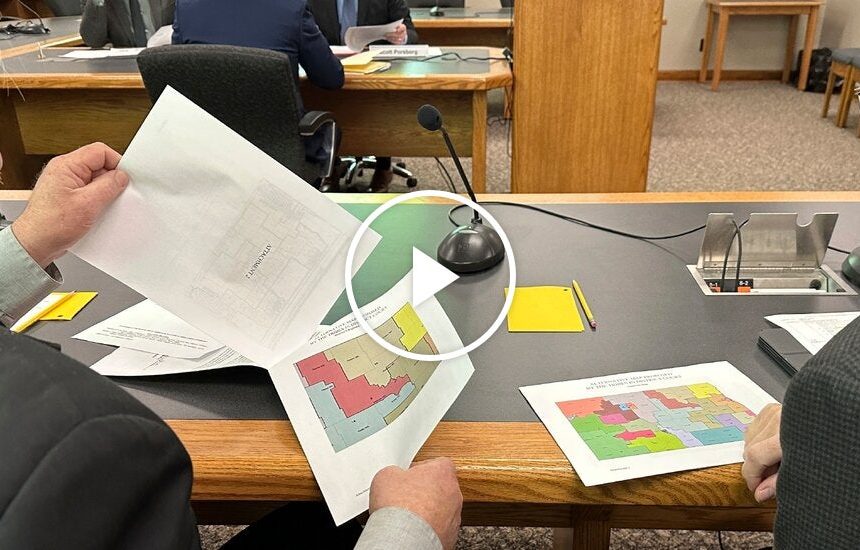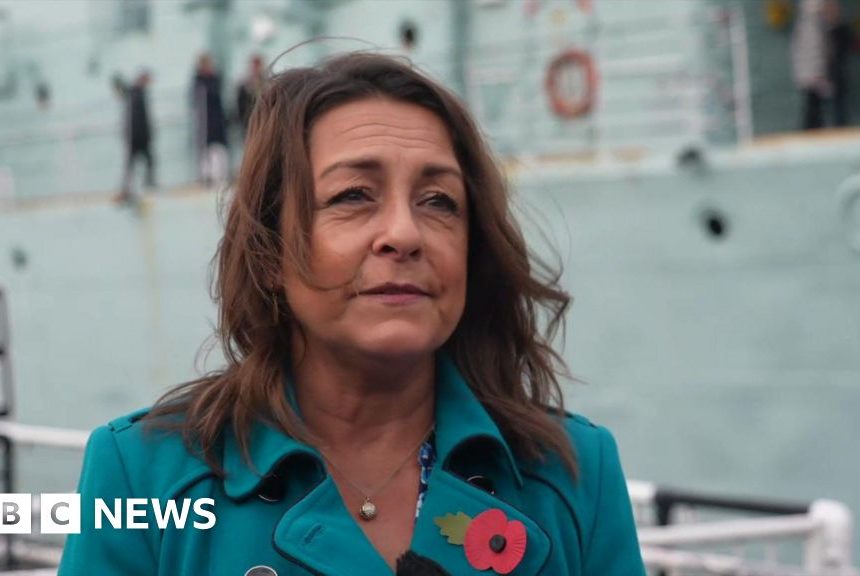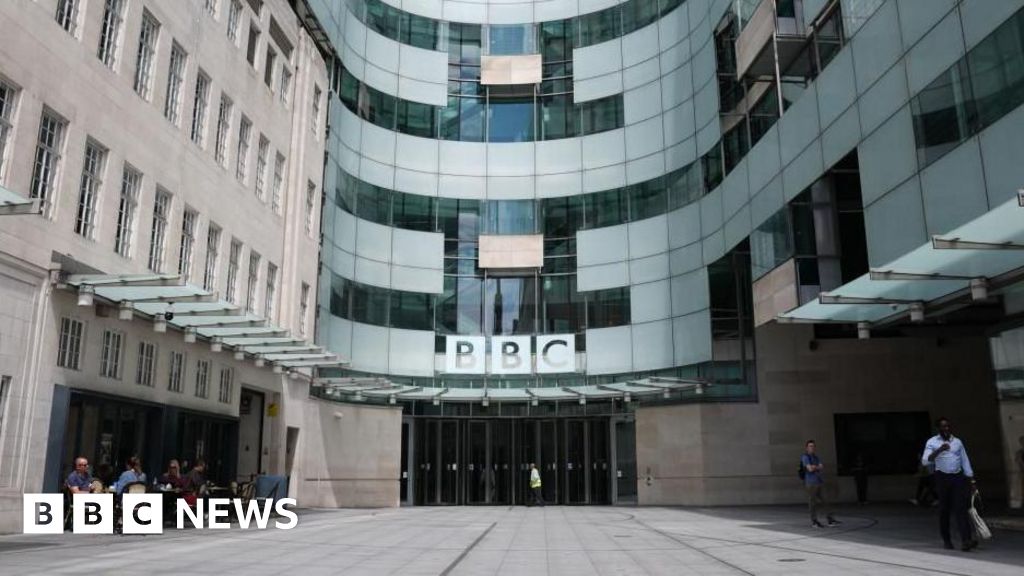Scotland’s finance secretary has said she may “have to revisit” a promise not to raise income tax in Scotland before the next Holyrood election.
Shona Robison warned she faces a possible “nightmare situation” where funding from Westminster could fall by £1bn due to decisions Chancellor Rachel Reeves could make in her upcoming Budget.
Speculation is mounting that Reeves will raise income tax but she may also offset the impact on workers by cutting national insurance contributions.
Robison is seeking an “urgent meeting” with her UK counterpart to discuss how that would affect Scotland’s finances.
The Treasury said it would not comment on speculation about the Budget but claimed its previous “record settlement” for Scotland meant it receives 20% more funding per head of population than the rest of the UK.
In a BBC Scotland interview, Robison said she was “anxious” about announcements that will be made in the chancellor’s Autumn Budget, due on 26 November.
She said the knock-on effect on Scotland’s finances meant she might have to reconsider a previous pledge not to change income tax levels when she sets her own budget in January.
“We don’t want to raise taxes. We’ve already set out in the tax strategy that we want to see that stability until the end of the parliament,” she told The Sunday Show.
“But in the event of unforeseen, exceptional circumstances clearly we would have to revisit that.”
In an unusual pre-Budget speech in Downing Street last week, Reeves said she would make “necessary choices” in her tax and spending plans after the world had “thrown more challenges our way”.
Some have speculated that might include a two pence rise in income tax coupled with an equal cut in national insurance.
This would have a neutral impact on most working people who pay both taxes, but would mean groups such as pensioners or landlords would pay more.
However, it would also have a big impact on the money the Scottish government receives from Westminster due to an agreement called the Fiscal Framework, which was agreed by John Swinney nearly a decade ago when more tax powers were devolved to Holyrood.
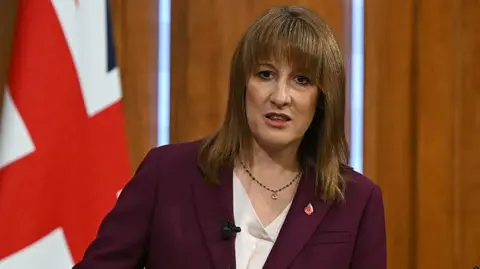 Getty Images
Getty Images‘Uncharted territory’
The Fraser of Allander Institute has estimated a 2p rise in the basic rate of tax elsewhere in the UK could cut Scotland’s finances by £1bn, unless the Scottish government matches the increase with its own tax rises.
Robison said a “nightmare situation” would be if Reeves cut both national insurance and income tax, but did not also increase public spending which would otherwise offset the change by increasing funding to Scotland through the Barnett Formula.
She is seeking a meeting with the chancellor, urging her to ditch her fiscal rules and also to amend the Fiscal Framework agreement so that Scotland does not lose out.
“What we need to see is either them not proceeding in this way and recognising the problem, to include National Insurance as part of the Fiscal Framework, so that if there was a cut to National Insurance we would see the benefit of that, ” she said.
“This is uncharted territory here, and it is not one that the Fiscal Framework ever envisaged.”
Speaking on the same programme, economist Sir Anton Muscatelli said the Scottish government faced some “difficult choices” on tax as there were dangers people might be dissuaded from living in Scotland.
The former Glasgow University principal, who has served as an economic adviser to the Scottish government, has been commissioned by Scottish Labour to produce a report on regional economic development in Scotland, due to be published on Monday.
He said: “We can’t just focus on tax rates, we have to focus on growth.
“The danger is – and this is what I’ve heard from people who I discussed elements of the report with – they’re worried that people are perhaps being put off.”
How does income tax differ in Scotland?
Since April 2017, the Scottish government has been able to set its own multiple income tax rates and bands, and it began using these new powers a year later.
People living in Scotland earning below about £30,300 pay slightly less income tax than they would elsewhere in the UK, with a maximum saving of about £28.
Above that threshold they pay increasingly more as earnings increase. Someone on £50,000 in Scotland pays £1,528 more than they would in the rest of the UK. That rises to £5,207 for someone on £125,000.
The Scottish government describes this as a “social contract” with the Scottish people which allows it to provide things such as free university tuition and no prescription charges on medicines.
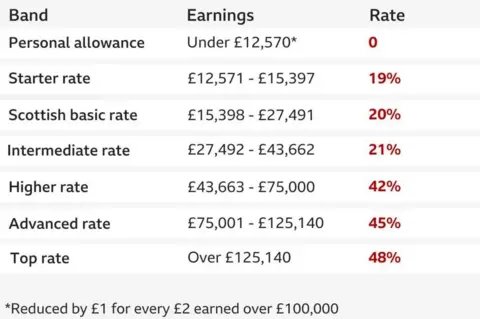
What is the Treasury saying?
The Treasury said it could not comment on the chancellor’s plans ahead of her Budget, but it said she had outlined the global and long term economic challenges that would influence her decisions.
A spokesperson said: “Our record funding settlement for Scotland will mean over 20% more funding per head than the rest of the UK.
“We have also confirmed £8.3bn in funding for GB Energy-Nuclear and GB Energy in Aberdeen, up to £750m for a new supercomputer at Edinburgh University, and are investing £452m over four years for City and Growth Deals across Scotland.
“This investment is all possible because our fiscal rules are non-negotiable, they are the basis of the stability which underpins growth.”
Why would a UK tax hike cut Scotland’s budget?
When the devolved government in Scotland was given more tax raising powers, an agreement called the Fiscal Framework was negotiated, setting out how the new system would work.
Part of that was something called the Block Grant Adjustment (BGA) which meant the funding Holyrood receives from Westminster was reduced to take into the account money the Scottish government was now able to raise directly.
The BGA was intended to work on a “no detriment” principle, to stop either government being better or worse off due to devolution.
It means the UK government is able to deduct funds from the block grant that it estimates it would have received if tax-raising powers were not devolved.
If the chancellor raises income tax, the BGA will also change. However, changes to National Insurance, which is not devolved, do not have an automatic impact.
Robison argues the impact on Scotland of a UK government income tax rise would be mitigated if National Insurance changes were also factored in.
If the chancellor uses extra tax revenue to increase public spending, that could benefit Scotland’s block grant money through Barnett Formula “consequentials”.
But Reeves’ fiscal rules, which she insists are vital for economic stability, mean she has limited options to increase spending.
Faced with a reduction in the block grant, Scotland will then have to generate more tax revenue itself or cut its own public spending in order to avoid a budget shortfall.

